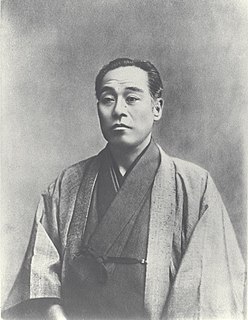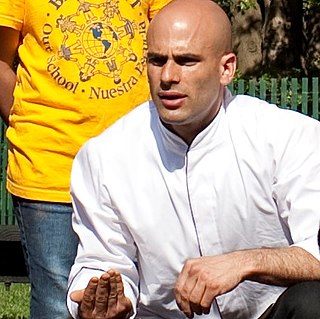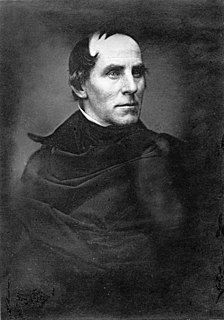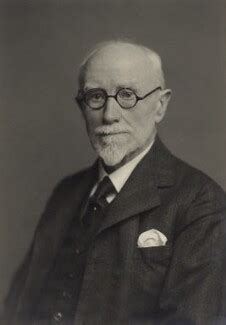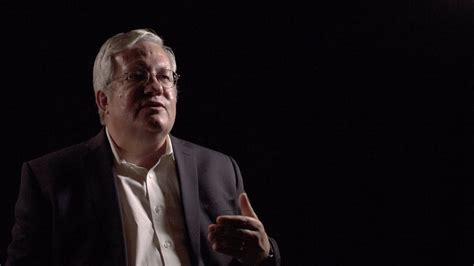Top 234 Cultivation Quotes & Sayings - Page 4
Explore popular Cultivation quotes.
Last updated on November 8, 2024.
But there are spirits of a yet more liberal culture, to whom no simplicity is barren. There are not only stately pines, but fragile flowers, like the orchises, commonly described as too delicate for cultivation, which derive their nutriment from the crudest mass of peat. These remind us, that, not only for strength, but for beauty, the poet must, from time to time, travel the logger's path and the Indian's trail, to drink at some new and more bracing fountain of the Muses, far in the recesses of the wilderness.
We know that the gifts which men have do not come from the schools. If a man is a plain, literal, factual man, you can make a great deal more of him in his own line by education than without education, just as you can make a great deal more of a potato if you cultivate it than if you do not; but no cultivation in this world will ever make an apple out of a potato.
An Italian philosopher said that "time was his estate"; an estate indeed which will produce nothing without cultivation, but will always abundantly repay the labors of industry, and generally satisfy the most extensive desires, if no part of it be suffered to lie in waste by negligence, to be overrun with noxious plants, or laid out for show rather than for use.
Keeping a slow hunch alive poses challenges on multiple scales. For starters, you have to preserve the hunch in your own memory, in the dense network of your neurons. Most slow hunches pass in and out of our memory too quickly, precisely because they possess a certain murkiness. You get a feeling that there's an interesting avenue to explore, a problem that might lead you to a solution, but then you get distracted by more pressing matters and the hunch disappears. So part of the secret of hunch cultivation is simple: write everything down.
No exercise brings into play all the muscles of the body in a more thorough manner, and none is more interesting than wrestling. He will find no other exercise more valuable in the cultivation of faculties which will help him to success in agility, strength, determination, coolness, and quick exercise of judgement.
Masonry, according to the general acceptation of the term, is an art founded on the principles of geometry, and devoted to the service and convenience of mankind. But Freemasonry, embracing a wider range and having a nobler object in view, namely, the cultivation and improvement of the human mind, may with more propriety be called a science, inasmuch as, availing itself of the terms of the former, it inculcates the principles of the purest morality, though its lessons are for the most part veiled in allegory and illustrated by symbols.
Charity is in the heart of man, and righteousness in the path of men. Pity the man who has lost his path and does not follow it and who has lost his heart and does not know how to recover it. When people's dogs and chicks are lost they go out and look for them and yet the people who have lost their hearts do not go out and look for them. The principle of self-cultivation consists in nothing but trying to look for the lost heart.
When a buddha is painted, not only a clay altar or lump of earth is used, but the thirty-two marks, a blade of grass, and the cultivation of wisdom for incalculable eons are used. As a Buddha has been painted on a single scroll in this way, all buddhas are painted buddhas, and all painted buddhas are actual buddhas.
Because every portion of the body, mind, and spirit yearns for the integration of yin and yang, angelic intercourse is led by the spirit rather than the sexual organs. . . . Where ordinary intercourse unites sex organs with sex organs, angelic cultivation unites spirit with spirit, mind with mind, and every cell of one body with every cell of the other body.
Generosity is another quality which, like patience, letting go, non-judging, and trust, provides a solid foundation for mindfulness practice. You might experiment with using the cultivation of generosity as a vehicle for deep self-observation and inquiry as well as an exercise in giving. A good place to start is with yourself. See if you can give yourself gifts that may be true blessings, such as self-acceptance, or some time each day with no purpose. Practice feeling deserving enough to accept these gifts without obligation-to simply receive from yourself, and from the universe.
In its broad sense, civilization means not only comfort in daily necessities but also the refining of knowledge and the cultivation of virtue so as to elevate human life to a higher plane... It refers to the attainment of both material well-being and the elevation of the human spirit, [but] since what produces man's well-being and refinement is knowledge and virtue, civilization ultimately means the progress of man's knowledge and virtue.
Psychological factors are vital. We don't learn how to improve our emotional intelligence. Even in ancient cultures, such as the Greeks, cultivation of the art of being able to enter a state of awareness that is deeply blissful, and beyond thought and feeling as such. Many people have become disillusioned with religions and, as such, have turned away from pursuing anything spiritual. That create a loss of sense of purpose and a lot of anger. Sure, there are all sorts of problems with organised religions, but there are also all sorts of problems with the world of 'science' too.
Do you know what causes low voter turnout in America? It's the result of having the fate of our nation at stake. This began with the bitter presidential election of 1828, which pitted the education, cultivation, and puritan constraint of John Quincy Adams against the yahoo populism of Andrew Jackson, thereby deciding permanently whether America would become a shining city upon a hill or an overlighted strip mall along a highway.
It's in that tradition that we're here today, and we look to soup because there's no force on the globe that brings people together on a daily basis with the same consistency and manner than the cultivation, preparation and eating of food. Food affords us the opportunity to touch everyone in our community, to address the needs of all groups - food is the intersection of the most pressing issues of our time.
Perhaps the chief cause which has retarded the progress of poetry in America, is the want of that exclusive cultivation, which so noble a branch of literature would seem to require. Few here think of relying upon the exertion of poetic talent for a livelihood, and of making literature the profession of life. The bar or the pulpit claims the greater part of the scholar's existence, and poetry is made its pastime.
The grounds on which golf is played are called links, being the barren sandy soil from which the sea has retired in recent geological times. In their natural state links are covered with long, rank bent grass and gorse. Links are too barren for cultivation: but sheep, rabbits, geese and professionals pick up a precarious livelihood on them.
There is no task of greater importance than to give our children the very best preparation for the demands of an ominous future, a preparation which aims at the methodical cultivation of their spiritual and their moral gifts. As long as the exemplary work of the Waldorf School Movement continues to spread its influence as it has done over the past decades, we can all look forward with hope. I am sure that Rudolf Steiner’s work for children must be considered a central contribution to the twentieth century and I feel it deserves the support of all freedom-loving thinking people.
Before I studied the art, a punch to me was just like a punch, a kick just like a kick. After I learned the art, a punch was no longer a punch, a kick no longer a kick. Now that I've understood the art, a punch is just like a punch, a kick just like a kick. The height of cultivation is really nothing special. It is merely simplicity; the ability to express the utmost with the minimum.
I climbed a path and from the top looked up-stream towards Chile. I could see the river, glinting and sliding through the bone-white cliffs with strips of emerald cultivation either side. Away from the cliffs was the desert. There was no sound but the wind, whirring through thorns and whistling through dead grass, and no other sign of life but a hawk, and a black beetle easing over white stones.
Christians often equate holiness with activism and spiritual disciplines. And while it's true that activism is often the outgrowth of holiness and spiritual disciplines are necessary for the cultivation of holiness, the pattern of piety in the Scripture is more explicitly about our character. We put off sin and put on righteousness. We put to death the deeds of the flesh and put on Christ. To use the older language, we pursue mortification of the old man and the vivification of the new.
Man is sitting disconsolate on an anthill one morning. God asks him what the matter is and man replies that the soil is too swampy for the cultivation of the yams which God has directed him to grow. God tells him to bring in a blacksmith to dry the soil with his bellows. The contribution of humanity to this creation is so important. God could have made the world perfect if he had wanted. But he made it the way it is. So that there is a constant need for us to discuss and cooperate to make it more habitable, so the soil can yield, you see.
The whole of education should be designed so as to occupy a boy's free time in cultivation of his body. He has no right to loaf about idly; but after his day's work is done, he ought to harden his young body, so that life may not find him soft when he enters it. No one should be allowed to sin at the expense of posterity, that is, of the race.
The promulgation of the great doctrines of religion, the being, and attributes, and providence of one Almighty God: the responsibility to him for all our actions, founded upon moral freedom and accountability; a future state of rewards and punishments; the cultivation of all the personal, social, and benevolent virtues-these these never can be a matter of indifference in any well-ordered community. It is, indeed, difficult to conceive how any civilized society can exist without them.
Here's the progression. Feminism won; you can have it all; of course you want children; mothers are better at raising children than fathers; of course your children come first; of course you come last; today's children need constant attention, cultivation, and adoration, or they'll become failures and hate you forever; you don't want to fail at that; it's easier for mothers to abandon their work and their dreams than for fathers; you don't want it all anymore (which is good because you can't have it all); who cares about equality, you're too tired; and whoops--here we are in 1954.
Curiosity, which may or may not eventuate in something useful, is probably the most outstanding characteristic of modern thinking ... Institutions of learning should be devoted to the cultivation of curiosity, and the less they are deflected by the consideration of immediacy of application, the more likely they are to contribute not only to human welfare, but to the equally important satisfaction of intellectual interest, which may indeed be said to have become the ruling passion of intellectual life in modern times.
Grace is in a great measure a natural gift; elegance implies cultivation; or something of more artificial character. A rustic, uneducated girl may be graceful, but an elegant woman must be accomplished and well trained. It is the same with things as with persons; we talk of a graceful tree, but of an elegant house or other building. Animals may be graceful, but they cannot be elegant. The movements of a kitten or a young fawn are full of grace; but to call them "elegant" animals would be absurd.
I would... establish the conviction that Chemistry, as an independent science, offers one of the most powerful means towards the attainment of a higher mental cultivation; that the study of Chemistry is profitable, not only inasmuch as it promotes the material interests of mankind, but also because it furnishes us with insight into those wonders of creation which immediately surround us, and with which our existence, life, and development, are most closely connected.
There is a true feminist movement in Buddhism that relates to the goddess T?r?. Following her cultivation of bodhicitta, the bodhisattva's motivation, she looked upon the situation of those striving towards full awakening and she felt that there were too few people who attained Buddhahood as women. So she vowed, 'I have developed bodhicitta as a woman. For all my lifetimes along the path I vow to be born as a woman, and in my final lifetime when I attain Buddhahood, then, too, I will be a woman.'
(Farm workers) are involved in the planting and the cultivation and the harvesting of the greatest abundance of food known in this society. They bring in so much food to feed you and me and the whole country and enough food to export to other places. The ironic thing and the tragic thing is that after they make this tremendous contribution, they don't have any money or any food left for themselves.
The cultivation of generosity is the beginning of spiritual awakening. Generosity has tremendous force because it arises from an inner quality of letting go. Being able to let go, to give up, to renounce, and to give generously all spring from the same source, and when we practice generosity ... we open up these qualities within ourselves.
I know, indeed, and can conceive of no pursuit so antagonistic to the cultivation of the oratorical faculty ... as the study of Mathematics. An eloquent mathematician must, from the nature of things, ever remain as rare a phenomenon as a talking fish, and it is certain that the more anyone gives himself up to the study of oratorical effect the less will he find himself in a fit state to mathematicize.
Anytime that is ‘betwixt and between’ or transitional is the faeries’ favorite time. They inhabit transitional spaces: the bottom of the garden, existing in a space between manmade cultivation and wilderness. Look for them in the space between nurture and nature, they are to be found at all boarders and boundaries, or on the edges of water where it is neither land nor lake, neither path nor pond. They come when we are half-asleep. They come at moments when we least expect them; when our rational mind balances with the fluid irrational.
When we let go of wanting something else to happen in this moment, we are taking a profound step toward being able to encounter what is here now. If we hope to go anywhere or develop ourselves in any way, we can only step from where we are standing. If we don't really know where we are standing—a knowing that comes directly from the cultivation of mindfulness—we may only go in circles, for all our efforts and expectations. So, in meditation practice, the best way to get somewhere is to let go of trying to get anywhere at all.
The capacity for imaginative reflex, for moral risk in any human being is not limitless; on the contrary, it can be rapidly absorbed by fictions, and thus the cry in the poem may come to sound louder, more urgent, more real than the cry in the street outside. The death in the novel may move us more potently than the death in the next room. Thus there may be a covert, betraying link between the cultivation of aesthetic response and the potential of personal inhumanity.
The last few decades have been marked by a special cultivation of the romance of the future. We seem to have made up our minds to misunderstand what has happened; and we turn, with a sort of relief, to stating what will happen-which is apparently much easier...The modern mind is forced towards the future by a certain sense of fatigue, not unmixed with terror, with which it regards the past.
Let us hopethat by the best cultivation of the physical world, beneath and around us; and the intellectual and moral world within us, we shall secure an individual, social and political prosperity and happiness, whose course shall be onward and upward, and which, while the earth endures, shall not pass away.
In an echo of earlier times, the climate change prophets have in recent years tried to silence counter views and suppress dissent. August members of the Royal Society, a body once noted for its cultivation of debate in science, are now leaders of the 'science is settled' camp: the only debate they consider to be legitimate is about choice among the different forms of the centralized action they believe is required to deal with the problems they foresee.
. . .nature is still predominant, and there are those who regret that with the improvements of cultivation the sublimity of the wilderness should pass away: for those scenes of solitude from which the hand of nature has never been lifted, affect the mind with a more deep toned emotion than aught which the hand of man has touched. Amid them the consequent associations are of God the creator-they are his undefiled works, and the mind is cast into the contemplation of eternal things.
If agricultural land be left uncultivated, in a few years the jungle returns, and signs are not lacking that a similar danger is always lying in wait for the fields of thought, which, by the labour of three hundred years, have been cleared and brought into cultivation by men of science. The destruction of a very small percentage of the population would suffice to annihilate scientific knowledge, and lead us back to almost universal belief in magic, witchcraft and astrology.
When we consider the close connection between science and industrial development on the one hand, and between literary and aesthetic cultivation and an aristocratic social organization on the other, we get light on the opposition between technical scientific studies and refining literary studies. We have before us the need of overcoming this separation in education if society is to be truly democratic.
The World Bank is the monopoly provider of poverty data and, partly due to a leadership change there, the World Bank's reporting has been heavily on the rosy side since about 2000. The Bank's cultivation of an upbeat picture affords a very interesting lesson in statistics and how you can, depending on which numbers you present and how you present them, create a more positive or more negative impression of the evolution of poverty.
It was only in the late nineteenth century and then the twentieth century, with the maturation of consumer capitalism, that a shift was made toward the cultivation of unbounded desire. We must appreciate this to realize that late modern consumption, consumption as we now know it, is not fundamentally about materialism or the consumption of physical goods. Affluence and consumer-oriented capitalism have moved us well beyond the undeniable efficiencies and benefits of refrigeration and indoor plumbing.
Whatever we may say against collections, which present authors in a disjointed form, they nevertheless bring about many excellent results. We are not always so composed, so full of wisdom, that we are able to take in at once the whole scope of a work according to its merits. Do we not mark in a book passages which seem to have a direct reference to ourselves? Young people especially, who have failed in acquiring a complete cultivation of mind, are roused in a praiseworthy way by brilliant passages.
Those who are esteemed umpires of taste, are often persons who have acquired some knowledge of admired pictures or sculptures, andhave an inclination for whatever is elegant; but if you inquire whether they are beautiful souls, and whether their own acts are like fair pictures, you learn that they are selfish and sensual. Their cultivation is local, as if you should rub a log of dry wood in one spot to produce fire, all the rest remaining cold.
Is it wholly fantastic to admit the possibility that Nature herself strove toward what we call beauty? Face to face with any one of the elaborate flowers which man's cultivation has had nothing to do with, it does not seem fantastic to me. We put survival first. But when we have a margin of safety left over, we expend it in the search for the beautiful. Who can say that Nature does not do the same?
Whenever education and refinement carry us away from the common people, they are growing towards selfishness, which is the monster evil of the world. That is true cultivation which gives us sympathy with every form of human life, and enables us to work most successfully for its advancement. Refinement that carries us away from our fellow people is not God's refinement.
But the wise know that foolish legislation is a rope of sand, which perishes in the twisting; that the State must follow, and notlead the character and progress of the citizen; the strongest usurper is quickly got rid of; and they only who build on Ideas, build for eternity; and that the form of government which prevails, is the expression of what cultivation exists in the population which permits it.
For me, cultivation of my own style really started by looking at people. There are just some really beautiful people in the world. When you're walking down the street, or you're at a restaurant, someone catches your eye because they have their own look. It goes way beyond what they're wearing-into their mannerisms, the way they smile, or just the way they hold themselves.
Holiness is the sum of a million little things — the avoidance of little evils and little foibles, the setting aside of little bits of worldliness and little acts of compromise, the putting to death of little inconsistencies and little indiscretions, the attention to little duties and little dealings, the hard work of little self-denials and little self-restraints, the cultivation of little benevolences and little forbearances.
The growth of all the plants of the garden from seeds and roots keep us mindful, in accordance with of the Parable of the Sower, of the need for our loving, mortified reception and cultivation in our hearts and souls of the seeds and roots of the supernatural gifts and virtues necessary for progress in the ascetical/mystical ascent of our souls toward union with God and with the divine will for Creation and Kingdom
I believe the ultimate path to enlightment is the cultivation of gratitude. When you're grateful, fear disappears. When you're grateful lack disapears. You feel a sense that life is uniquely blessed, but at the same time, you feel like you're a part of everything that exists and you know that you are not the source of it. In that state you show up differently for the people around you. Just walking around you vibrate.
Cultivation is at least one of the greatest natural improvements ever made by human invention. It has given to created earth a tenfold value. But the landed monopoly that began with it has produced the greatest evil. It has dispossessed more than half the inhabitants of every nation of their natural inheritance, without providing for them, as ought to have been done, an indemnification for that loss, and has thereby created a species of poverty and wretchedness that did not exist before.
Men who have flattered themselves into this opinion of their own abilities, look down on all who waste their lives over books, as a race of inferior beings condemned by nature to perpetual pupilage, and fruitlessly endeavouring to remedy their barrenness by incessant cultivation, or succour their feebleness by subsidiary strength. They presume that none would be more industrious than they, if they were not more sensible of deficiences; and readily conclude, that he who places no confidence in his own powers owes his modesty only to his weakness.











